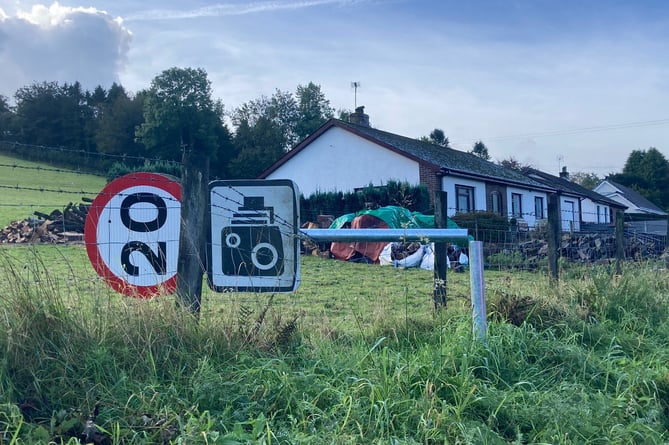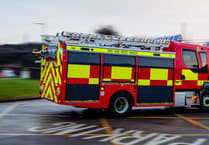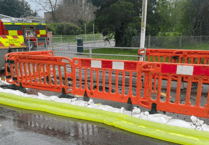POLICE don’t want to be left ‘holding the baby’ when it comes to enforcing controversial 20mph speed limits, a meeting has been told.
The Police and Crime Commissioner for Dyfed-Powys, Dafydd Llywelyn, told a meeting in Aberaeron that a ‘strong evidence base’ exists on safety grounds for the rollout of 20mph speed limits in residential areas of Wales, but the police did not want to be left ‘holding the baby’ when it came to enforcing the slower speed.
Mr Llywelyn said there needed to be societal change, and enforcement on an incremental basis.
He had been asked at a Dyfed-Powys police and crime panel meeting if he was satisfied that he had sufficient enforcement resources.
The Plaid Cymru commissioner said police carried out the majority of speed enforcement on the country’s roads via the Welsh Government-funded road safety group GoSafe.
This, he said, included the deployment of motorcyclists who could record drivers’ speeds, as well as the more familiar vans.
Mr Llywelyn said he understood the safety rationale behind the 20mph limit, which came into force on most residential streets last month.
He said it was estimated that a single road fatality had average costs in excess of £1 million associated with it, such as investigation work and foregone income of the deceased.
He said: “If this policy reduces that figure, I’m 100% supportive of it.”
Mr Llywelyn said the Welsh Government had engaged behavioural scientists on the societal change element of the switch.
He added: “We (police forces) made representations to the Welsh Government from a policing point of view that we didn’t want to be holding the baby for enforcement.”
Deputy Minister for Climate Change Lee Waters said this week that the “grace period” for people breaking the 20mph limit was coming to end. Enforcement is to begin from December.
The Labour MS for Llanelli said research had showed there were three groups of drivers: one which would will follow the 20mph law “come what may”; another which “did not want to comply”; and a middle group which would adjust their behaviour if others did so. It was this middle group, he said, that the Welsh Government particularly sought to influence.
Mr Llywelyn, meanwhile, said he supported further discussions about the 20mph limit given the number of people who have signed a petition calling for it to be rescinded. The petition to the Senedd had been signed by more than 464,000 people as of 27 October.
The commissioner said 108 people had died on Dyfed-Powys’s roads between 2018 and 2022 compared to 138 from 2013 to 2017.
Panel member, Cllr Keith Evans, said he suspected that many of those were driver fatalities rather than pedestrian fatalities, which the 20mph limit particularly aimed to reduce.
Cllr Evans said he felt Welsh Government decisions about the 20mph policy could have been influenced by the public had more people taken part in a public consultation beforehand.
Cllr Evans, who asked the enforcement question, also wanted to know if Mr Llywelyn had had any discussions with the force’s chief constable regarding the approach it would take with this work. The commissioner said he hadn’t had any discussions as yet about resources, but pointed out there had been a “slight uplift” in GoSafe funding.
Cllr William Powell, meanwhile, said he was aware of some communities which had embraced the new speed limit to the extent that they were lobbying for the removal of 20mph “exemptions” for roads where the 30mph limit still applied.
Referring to enforcement, Cllr Powell said: “It’s good to see police forces adopting a proportionate response early on.”




